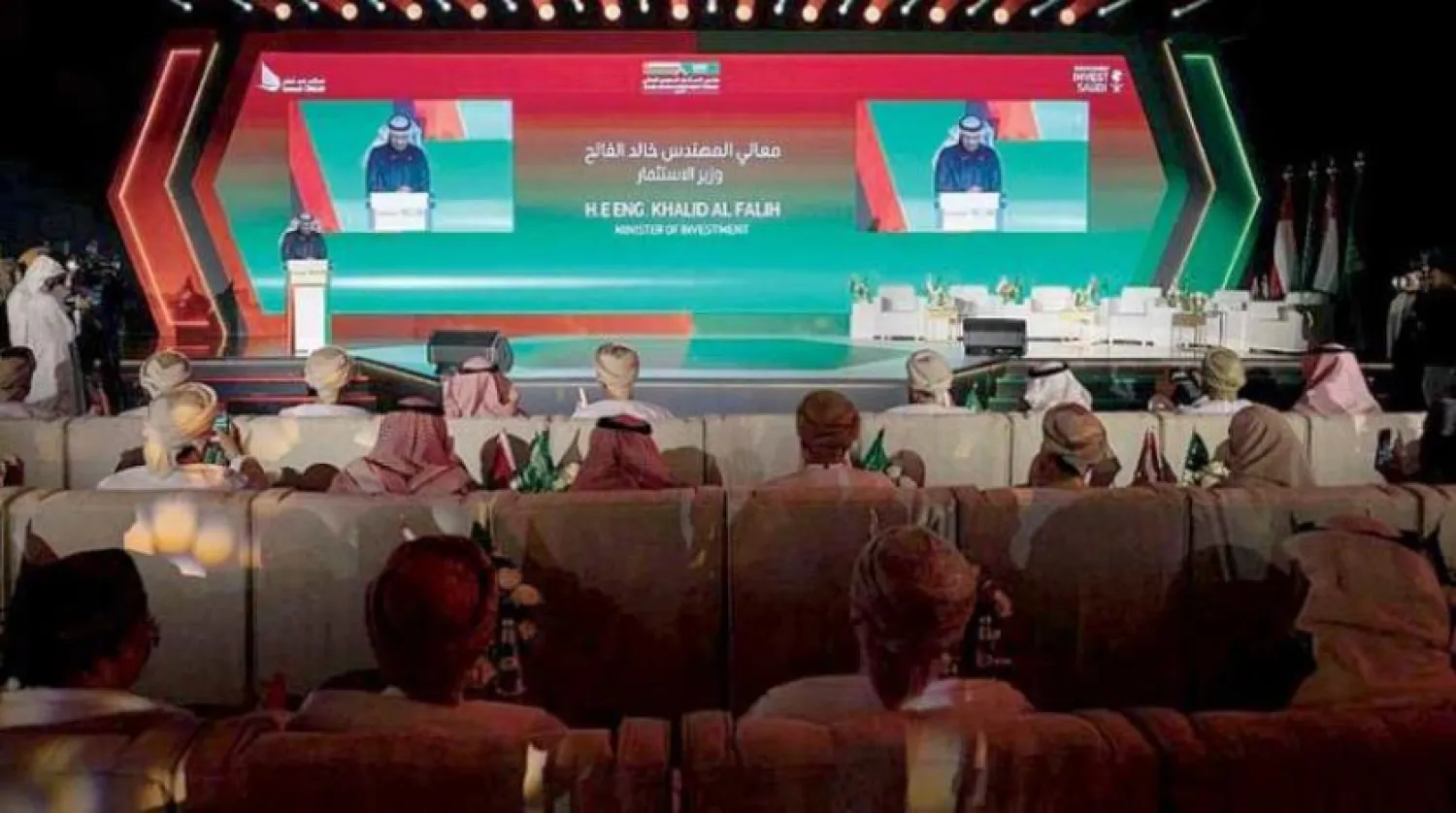Saudi Arabia and Oman announced on Wednesday that they signed 13 investment MoUs between the their private and public sectors with a value exceeding one billion riyals ($266.6 million).
Fields covered by the agreements include oil and petrochemical storage, renewable energy and green hydrogen, mining investment, logistics and transportation, entrepreneurship, automation of research, development and innovation, fisheries, support for marine industries, tourism and travel, in addition to solar energy projects.
The signing of the MoUs came on the sidelines of the Saudi-Omani Investment Forum held in Riyadh on Feb.1-4.
In this context, the Saudi Fund for Development signed a memorandum of understanding for an infrastructure development project worth $319 million (SAR 1.2 billion) in Oman. The project aims to fund the infrastructure of the special economic zone in the governorate of ad-Dhahirah.
The MoU, which was signed in the presence of Saudi Minister of Investment Khalid al-Falih and Omani Minister of Commerce, Industry and Investment Promotion Qais bin Mohammed al-Youssef, aims to enhance cooperation by establishing the special economic zone that would increase commercial trade, encourage partnerships between the various sectors and reduce the cost of production and export between the two countries.
CEO of the Saudi Fund for Development Sultan al-Murshed said that the MoU “comes to strengthen the long-established historical relations and close partnership between Saudi Arabia and Oman, as these development projects and programs contribute to achieving the ambitious visions of the two countries.”
Addressing the opening session of the forum, Eng. Khalid Al-Falih, the Saudi Minister of Investment, underlined Riyadh’s keenness to strengthen and develop investment and economic relations with Oman.
Al-Falih emphasized the importance and vitality of the private sector and its active role in advancing development in the two countries and activating the Saudi and Omani partnership, as well as its great contribution to the success of the forum.
Omani Minister of Commerce, Industry and Investment Promotion Qais Al-Youssef said that the forum reflected the strength of the Saudi-Omani relations, pointing to the two countries’ keenness to activate partnership in priority sectors to advance economic sustainability, keep pace with economic changes, and create links between the industries.










